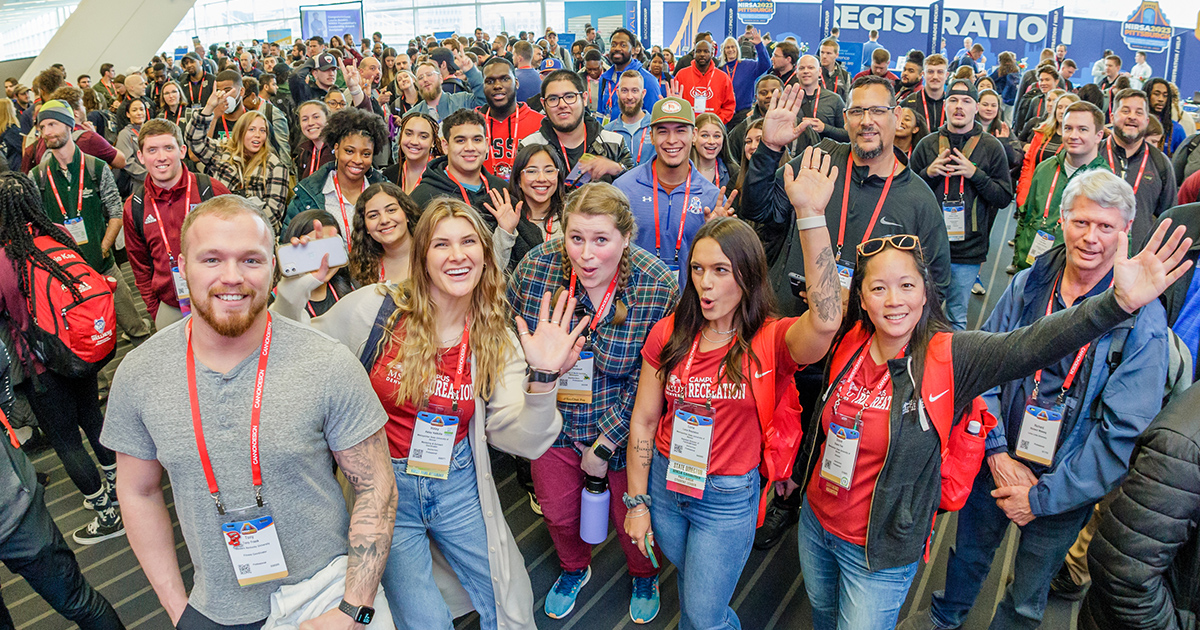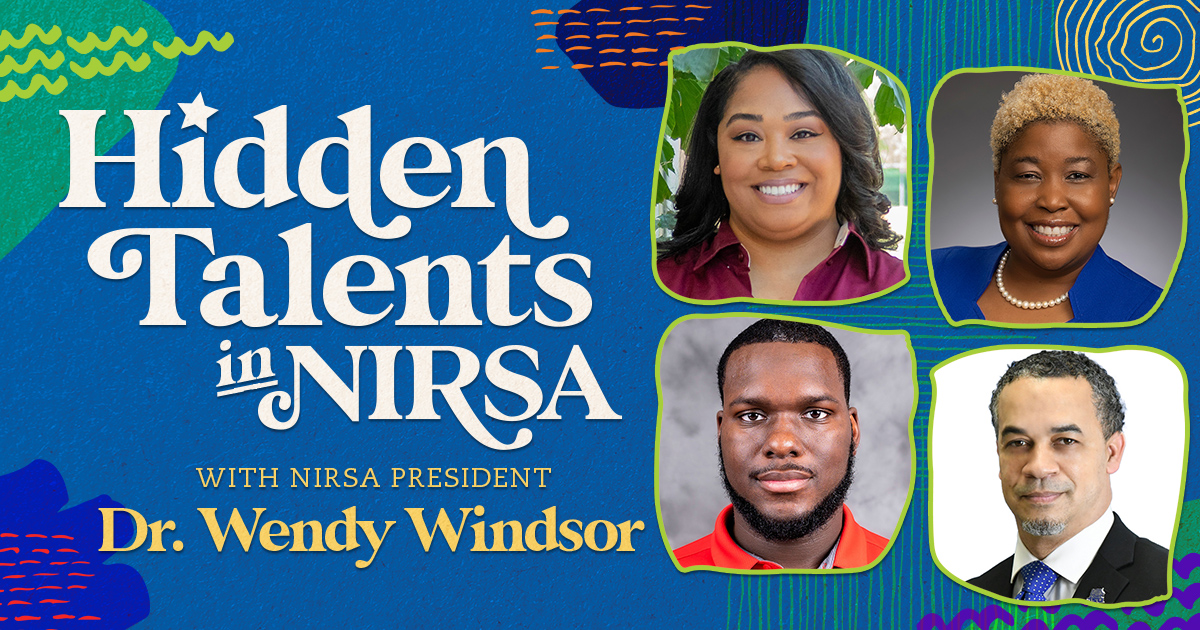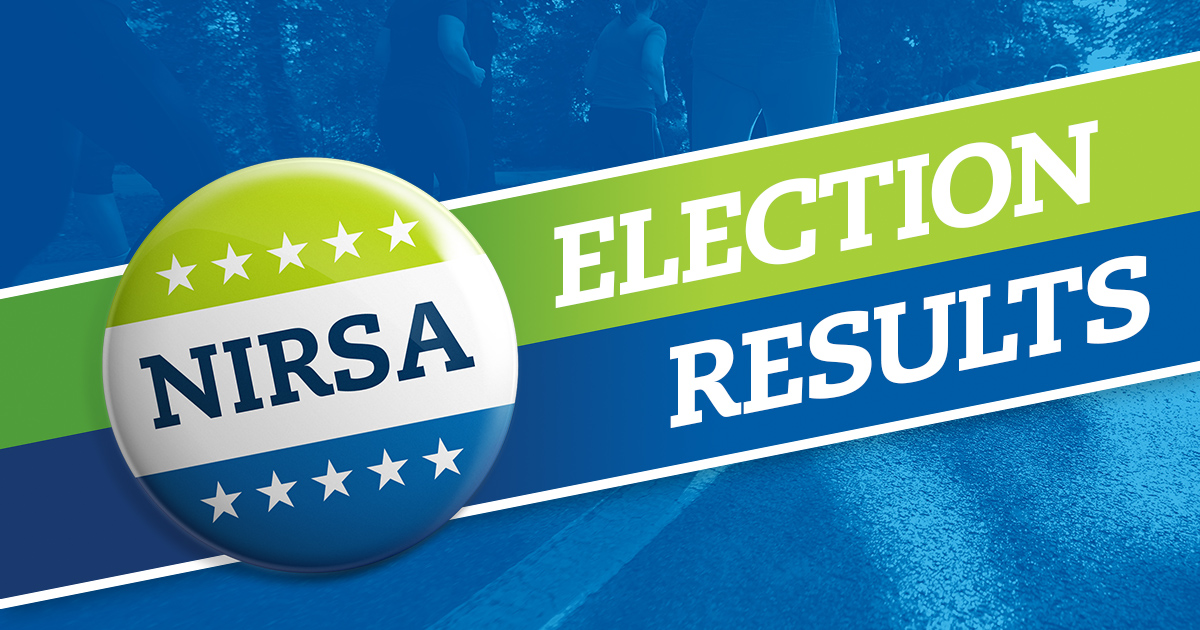By Stan Shingles, 2015-2016 NIRSA President, Assistant Vice President at Central Michigan University
As I pen these notes—after the conclusion of a productive 2015 year and a wonderful holiday season, and at the beginning of a new semester, I do so with great excitement and enthusiasm. It is difficult to feel anything but excitement and anticipation when I actually sit down to think about the considerable good accomplished by our association and profession. The great work of our associations’ volunteer leaders, the NIRSA Headquarters’ staff, and the students we all serve are a testament to the commitment and dedication we, as campus recreation professionals, make every day to improving the lives of others. Constant, never-ending improvement is a challenge for a membership-driven association; but with the continued hard work of our members, there is no end to The Places We Will Go!
As I reflect on 2015 though, it is not only excitement and pride that I feel. I also write these notes with a heavy heart as I reflect on the many tragedies and instances of violence that have occurred on many college campuses across North America this past year. As 2015 rolled on and the frequency of tragedies seemed to increase, the heartfelt condolences that we continued to extend to our colleagues at these campuses began to ring hollow. After all, our deepest sympathies were impacted with a sense of helplessness and fear. Are we really doing enough as a profession and as an association to address these issues?
Violence is not a problem that is confined to college and university campuses; it is a problem within our culture at large. Preventing violence is a formidable challenge. And while we can’t claim to have any special ability to eliminate violence, I do hope that by examining several considerations we will be able to help prepare our campus communities.
After one episode of violence on a NIRSA member campus last fall, I took to the NIRSA Connect platform to reach out to my NIRSA colleagues about the issue:
Re-posted from Nov 06, 2015
Wednesday, marked another tragic, violent act on or near a college campus. Every time NIRSA learns of these tragic events, Executive Director Pam Watts and I share our thoughts and prayers with the victims, families, and communities. For each incidence that we become aware of, NIRSA HQ reaches out to the leaders of Campus Recreation departments on behalf of the Association to let them know our members and resources are available to support them in any way they can.
It seems as though these acts of gross violence in and around our campus communities are on the rise. Statistically speaking, I don’t know whether this is true or not…and that isn’t really the point. I do know that each time it happens—regardless of the circumstances—I’m saddened, I’m angry, and I’m worried about if/when it’s going to happen on my campus.
But each time we’ve had the sad experience of sending our condolences, I read or hear resilient responses from the directors we’ve reached out to. From those directors I hear such resolve and care. In their responses, there is commonly a thread where their department is going to take tangible actions to support their communities in the recovery process. We learn about new efforts and ideas to increase campus safety and help limit the occurrence or impact of violent acts. And while it’s fine for NIRSA leadership to hear the positive contributions campus recreation makes in these times of tragedy, the entire NIRSA membership should have the opportunity to become aware of it.
So, my fellow colleagues in collegiate recreation and partners in NIRSA, I ask you to share with me and with your fellow campus recreation professionals what you’re prepared to do to support your communities in times of crises.
How are you working to reduce and prevent acts of violence on and around your campus?
How can we support each other as we navigate what feels like an increasingly-violent world?
The Association is in the initial stages of considering advocacy, policy, and educational resources related to campus safety—specifically in the context of campus recreation. As we begin that process, we want to hear from you. What are your thoughts? What good work is already being done?
I appreciate each response from members; they have helped me resolve to issue a call to action that encourages us as professionals—both individually and as a team—to become better equipped to manage the before, during, and—most importantly—the after of an act of violence on our campuses.
The Board of Directors has asked the Policy & Legislation Committee to examine this issue of preparing for and responding to acts of violence on campus, and to make recommendations t about potential avenues for association focus. The committee—chaired by Austin Anderson, Assistant Professor of Kinesiology and Sport at the University of Southern Indiana—will make their recommendations to the NIRSA Board in the spring.
Additionally, we are also pleased that we have been able to secure David Perry, AVP for Safety and Chief of Police from Florida State University (FSU) as an invited speaker at the 2016 NIRSA Annual Conference & Recreational Sports Exposition. Chief Perry’s presentation will highlight previous security enhancements implemented at FSU that kept fatal shootings in 2014 from becoming an even worse tragedy. FSU’s plan for addressing violence on campuses has been recognized as a model plan in campus policing throughout the country. I hope you will join us for this presentation in Orlando. I am sure that Chief Perry—with his knowledge of, experience with, and passion for innovative policing—will provide attendees with meaningful insight.
As we continue to focus the Association on The Places We Will Go, I am thankful for the continued contributions our superb colleagues are making to our profession’s body of knowledge. Most recently, Dr. Don Stenta of The Ohio State University and Dr. Cara McFadden of Elon University served as editors for the “Student Leadership Development through Recreation and Athletics” publication, part of the New Directions for Student Leadership series.
NIRSA members receive a discount on this book, which has been created
“to engage higher education professionals with concrete competencies that will enhance the understanding of how students’ leadership capacity is developed in recreation and athletics environments. Moreover, developing leadership capacity of students has become an essential outcome in a variety of settings within higher education environments over the past decade.”
This outstanding resource will allow professionals to better understand leadership models and to strengthen their abilities to positively influence the leadership development of students throughout their time working in higher education. The ideas shared in this book are relevant, purposeful, and reflect a change in the thinking about student development in collegiate recreation. On behalf of NIRSA, we thank both Don and Cara for their outstanding contributions to our profession’s academic literature. I urge NIRSA members—from students to the director—to take some time to read this wonderful resource.
The most constant part of NIRSA is our unwavering commitment to and support for each other and our students. My many years in the profession affords me the perspective to pause and reflect on the many changes that have occurred within our industry. One constant however is the continued commitment of collegiate recreation professionals to developing students.
This time of year always brings a smile to my face, as I think about the many students who will be positively impacted by state workshops, the Region III Student Lead On, the Emerging Recreational Sports Leader Conference, and the Annual Conference. These opportunities allow us to engage students, develop meaningful and authentic mentoring relationships, and also provide us with the time and space to reflect on our own development.
The foundations, framework, and focus might be a bit different than it was twenty-five years ago, but what is a constant are the many opportunities NIRSA affords students and professionals to engage and get involved. Let’s continue this great support for our students and find our own calls to action, as we examine the many issues and challenges facing our profession and the association.
“I’m sorry to say so but, sadly, it’s true
that Bang-ups and Hang-ups can happen to you.”-Dr. Seuss
Be well…






